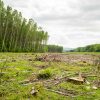Hedgehogs are now classified as “near threatened” on the International Union for Conservation of Nature’s (IUCN) Red List, following a significant decline in their population of at least 30% over the past decade. Previously categorized as “least concern,” hedgehogs, once common throughout Europe, are now facing increasing risks due to urban development and habitat loss.
Factors contributing to their decline include intensive farming practices, roads that fragment their habitats, and environmental pressures from human activities.
The threats to hedgehogs are compounded by specific dangers such as vehicle collisions, pesticide use, and poorly managed domestic gardens. Pesticides, in particular, not only reduce the availability of insects, which form a significant part of hedgehogs’ diet, but can also directly poison these mammals. This situation has raised alarms among conservationists, as the survival of hedgehogs in Western Europe becomes increasingly precarious.

Abi Gazzard, a program officer at the IUCN, emphasized the urgent need to address the downward trend in hedgehog populations. While there are uncertainties regarding their distribution and population data, there is still a possibility to halt their decline. Conservation efforts must be intensified to prevent hedgehogs from slipping further toward extinction, highlighting the importance of gathering more comprehensive data to inform effective strategies.
In response to the worrying status of hedgehogs, organizations like the Mammal Society are advocating for wildlife-friendly gardening practices. Suggestions include creating small gaps in fences for hedgehog movement, avoiding pesticide use, and providing shelter through log piles or dedicated hedgehog houses. Society stresses that public awareness and action are crucial to reversing the trend of decline, as many people already recognize the diminishing presence of hedgehogs in their surroundings.
The red list not only highlights the plight of hedgehogs but also reveals broader concerns for wildlife in the UK. For instance, several shorebird species have also experienced significant declines, with four moving to higher threat categories due to challenges like pollution, climate change, and habitat loss. Moreover, a global assessment indicates that 38% of tree species face extinction, primarily due to deforestation and invasive species, underlining the urgent need for comprehensive conservation efforts across various ecosystems.

